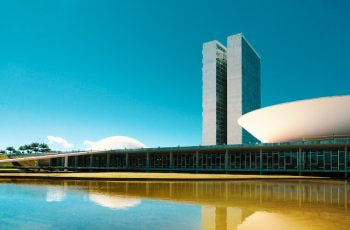Brazil Welcomes a New Lottery in Pelotas
Brazil has welcomed a new lottery in the form of the Pelotas Lottery, also known as Lotopel. It was approved in April about one month after an initial suggestion and modification of the project in the local government. Pelotas’ mayor, Paula Mascarenhas was the one to give her official approval by signing the lottery into effect on April 24, 2023.

Pelotas’ new lottery could fund much-needed health services.
©camilo jimenez/Unsplash
A needed cash-infusion for Pelotas’ health system
This new lottery was created with Law 7,174/2023. In Pelotas, a city in the southern state of Rio Grande do Sul, lottery creation must happen via the regular law process. Therefore, a new lottery must have government approval across the board, rather than only being a suggestion or creation of a business or Brazil’s gaming agency.
However, the federal law allows municipal governments to pursue any games that are federally approved, like lotteries. They simply must go through the correct process. Thankfully, the lottery was met with enthusiasm and not disapproval, which means it will start up soon for the people of Pelotas.
The new law for Lotopel stipulates that the awards paid out will come from its earnings from ticket sales. Sales revenue will also be the source for income tax paid on each prize. Additional details were laid out in the law, for example the provision of money to pay for the maintenance of the lottery and administration costs, as well as various operator fees.
Furthermore, the lottery will fund certain services in Brazil, as is the norm for legal and regulated betting. In this case, a portion of revenue will go towards health funding. 60% is allocated to the Municipal Health Fund in Pelotas. 40% goes to hospitals that run on philanthropic contributions.
Of the latter category, the money will be split equally between any qualifying hospitals. The use of these funds is monitored by Pelotas’ Municipal Health Council to ensure there is no misuse of funds.
Though Pelotas’ mayor and local council have given their okay for the lottery, another important step remains. Brazil’s Executive Branch also must issue a decree approving the lottery. This decree will also finalize any rules associated with how it is run, in alignment with Brazil’s existing lottery legislation.
Finally, the Pelotas Lottery must find an operator. There are likely already potential operators waiting in the wings as the project was first suggested in 2022. Still, finding the right operator can be more difficult than it sounds, as companies must bid against one another and prove they are up to the task in what can be an arduous process.
Though operating a lottery or other gaming vertical can earn great profits, there are many regulations in place to abide by. Operators also must be careful to pay the correct tax and to maintain proper licensing in accordance with state law. When push comes to shove, these details can be intimidating for some would-be bidders.
However, there is great hope in Pelotas that the project will come to fruition quickly. When it was first proposed in July 2022, mayor Mascarenhas said that it would be a vital contributor for health projects in the city. She shared that the city is in an especially difficult time and blamed federal government decisions for this.
She also said that Pelotas was open to finding creative solutions for its lack of health funding, which is why they remained open to the idea of the lottery. In August 2022, a local paper also called for speedier action on the matter.



